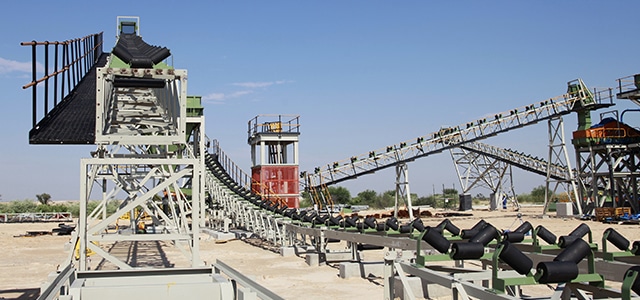AFRICA 2014 | MINING

Africa’s mining industry is on the verge of breaching limits historically imposed by political risk constraints.
Africa accounts for an astoundingly high share of the world’s mining resources. This mineral-rich continent is home to about 80% of the world’s platinum, palladium and rhodium deposits, as well as about 75% of manganese reserves and some 40% of gold deposits, according to Boston Consulting Group.
Yet a perception of high political risk in many countries, coupled with the steep cost of operating mines in remote locations with little or no infrastructure, has left these valuable resources largely untapped.
Until recently, some of the biggest investments in mining in sub-Saharan Africa were made by Chinese state enterprises. For more than a decade, they had faced little if any real competition from other multinationals. But that is changing. A case in point is Freeport McMoRan, which started producing copper at the Tenke Fungurume mine in the Democratic Republic of the Congo in 2009 with a 56% share.
“We have seen the geopolitical risk overall ease,” says Jeff Largey, head of EMEA metals and mining equity research at Macquarie Capital. “Rule of law is becoming more enforced. All of that is making it easier to invest in and develop the resource base of the continent.”
Now bankers in Africa are becoming more comfortable with the stability of the revenue of remote mines than that of farms, safari parks or hotels, and are willing to finance the construction of roads and other infrastructure they require. “If you take a piece of railway line which is connected to a mine, you know that is easier to get funded by a bank and the capital markets,” says Theuns Ehlers, head of project finance at Absa Capital in Johannesburg.
To be sure, this is a gradual transformation, and not every multinational has the risk tolerance for it. On August 20, BHP Billiton of Australia confirmed plans to spin off its coal operations in South Africa, an aluminum smelter in Mozambique and assets on other continents that were in the bottom two quartiles of BHP’s cost curve.
“You will see smaller transactions coming up with a similar pattern,” says Matthias Tauber, head of Boston Consulting Group’s mining practice for Central Europe, Middle East and Africa. “The reason is the risk profile.” Political risk concerns on the continent have long been a hindrance to development.
Another issue is labor unrest, which came to the fore with a recent settlement in South Africa after police shot dead 34 platinum miners who were striking for higher wages in August 2012.
“Platinum prices [have] risen nearly 200% over the past 10 years, but the return on platinum production has collapsed by 90% over that period,” says Paul Gait, a senior analyst at Sanford C. Bernstein & Co. in London who covers mining companies. “All the increase in platinum as a commodity has been transferred to labor, while capital has received nothing.”
As a result of such issues, mining companies in Africa face high financing costs and continued pressure to deliver a quick return on capital. “If I need $1 billion to develop an iron ore mine in Australia, I can get away with a 12% to 15% rate [of return] versus a significantly higher rate of 18% to 20% to develop a $1 billion iron ore mine in Guinea,” says Tauber. “And they want their money back in a relatively quick period independent of returns—people look at five or six years—because it’s hard to predict everything.”
But deals like the BHP spin-off represent an opportunity for M&A to drive the next phase of development of Africa’s mining industry. Tauber sees the industry as just one decade away from realizing its full potential on the continent—on a par with that of Australia, Brazil or Chile.



